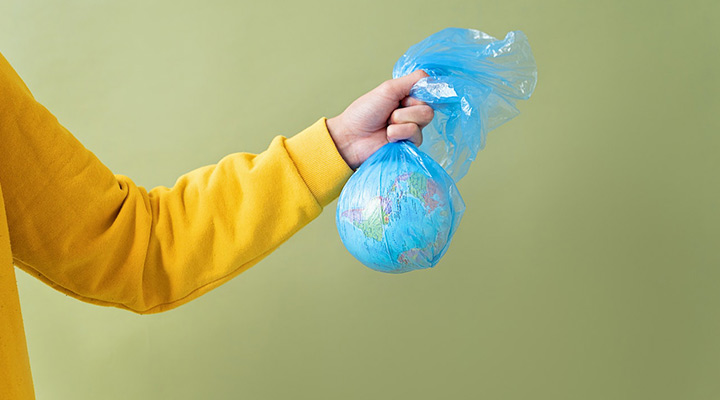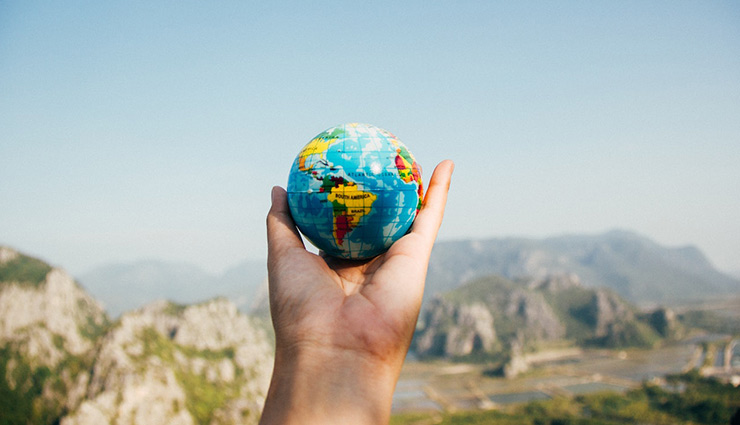17 practical ways to change the world
The world is full of amazing people and beautiful places, but we can easily get caught up in adverse events like environmental crises, violence, and poverty. Fortunately, we don’t need to be superpowers to help save the world. We can do many things at home or in our community to improve the world. Even the most minor steps can lead to significant changes. So don’t be afraid to get out there and start helping.
1. Avoid judging
If you want to change the world, you need to make sure you are open to different perspectives and changing yourself. When you judge others, you sometimes blame them and may not address the real and more important issues. Try to see life from the other person’s point of view to understand better where they are coming from. If you keep an open mind, you can make many more changes for the better.
- Look for choices you feel good about so you’re less judgmental about others. For example, if you feel good about your appearance, you should not judge others because of their appearance.
- Instead of putting someone down, find something nice to say about them and help correct your thoughts.
2. Be honest and trustworthy
You’ve probably heard that honesty is the best policy, and that’s true when you’re looking to improve yourself and the world. Please don’t do anything to make people like you or boost your self-esteem, but do everything because you are genuinely passionate about it. When people see that you are the real you, they will trust you more and respect you as much as you have appreciated them.
Show your generosity by helping others and acting like a team member.
3. smile more
Even a small smile can brighten someone’s day. It doesn’t matter where you are or who you meet. When you are with them, please give them a warm smile. When you smile, you make the other person feel good and encourage them to smile. If he does the same, you’ve started a chain reaction of kindness.
- You don’t have to know the person to spread kindness. Try to smile at strangers when you pass them.
- Make sure that your smile fits the situation. For example, when someone gives you bad news, you are not supposed to smile!
4. Compliment someone
You probably get a warm fuzzy feeling when someone says something nice about you. So why don’t you return the favor? Say something that shows your appreciation for the way he behaved. Make sure you are sincere when complimenting others, so your compliment comes across as genuine. Even a few small words can have a significant impact on them.
For example, you could say something like, “I appreciate how patient you are when you listen to me,” or “It means a lot to me that you took the time to clean the house when I was tired. Thank you.”
5. Celebrate the successes of others
It’s forward to envy others when they succeed, but I so much more fun to share in their excitement. Avoid comparing yourself to others and thinking of ways to be better than them. Instead, look at their accomplishments and praise them for what they’ve done. When you lift the other person, you may influence them to do it again.
Avoid taking credit for others’ achievements.
6. Do random acts of kindness
It may seem like being kind to someone doesn’t make a big difference, but your heart spreads through them. Genuine compassion involves being friendly, compassionate, and considerate regardless of the circumstances. Be aware of those around you and look for opportunities where you can help them. For example, if you see someone struggling to carry their belongings, you can help them take them to the car.
Remember to be kind to yourself to take care of your mental health. Use positive affirmations and avoid being too hard on yourself.
7. Drink less water
Many of us waste a lot of water when bathing or cleaning, which hurts the environment. By doing some of these simple things at home, you can save water :
- Shorten shower time.
- Turn off the faucet while brushing.
- Do not use the washing machine until you have enough clothes to wash.
- Repair leaking pipes as soon as possible so that water is not wasted.
- Check your water consumption and plan to reduce water consumption.
- For your yard or garden, choose a variety of flowers and plants that grow naturally and without additional irrigation, according to your geographical area.
By doing these things, you will save on fresh water and pay less money on the water bill.
8. Recycle as much as you can

You’ve probably heard the phrase “reduce, reuse, and recycle” in your lifetime, but you may not know how useful it is for conserving natural resources. Check if the recycling symbol is on the packaging whenever you want to throw something away. Plastic containers, paper, metal, glass, and electronics can be recycled.
- Separate your recyclables from regular trash and keep them in a different bin.
- Contact your local waste management service to see if your recyclables are collected curbside or if you need to take them to a collection center.
- Some recyclable materials are different from others and require more separation. Always check which recyclables your local waste collection service accepts before putting them in the bin.
9. Buy environmentally friendly products
Many products rely on fossil fuels, chemicals, or unfair labor. So constantly research the companies you support and the products you buy. As you are shopping for products, look for terms like “energy efficient,” “recycled materials,” or “chemical free” on the packaging, as these products will have less of a negative impact on the environment. If you’re grocery shopping, visit farmers’ markets, shop organically, and look for products produced without pesticides to support local producers.
- You can replace incandescent bulbs with energy-efficient LED bulbs.
- Before purchasing animal products, research the company to see if the animals are treated well.
- Try to support local businesses and products, as they reduce the amount of transportation (i.e., products travel a shorter distance to reach the consumer), resulting in less greenhouse gas emissions.
10. Reduce carbon emissions
When you burn fossil fuels, pollution is added to the air, damaging the environment and reducing health. Even if it’s easier for you to drive, look for opportunities to use alternative transportation methods. If your destination is not too far away and the weather is nice, walk or bike. Otherwise, you can reduce your emissions by using public transportation, sharing a taxi, or carpooling with others.
- Talk to your boss and see if you can work remotely. Even if you can work from home a few days a week, you don’t need to burn fuel to commute to work.
- Electric cars are also good options because they run on batteries instead of gasoline.
11. Raise people’s awareness of your concerns
Even if you don’t have much time or money to spend on your cause, spreading the word about it can help make others aware of global issues. In several social media posts, explain why this is important and why others should pay attention. If you want to share your goal more privately, send individual messages to your friends so you can send each person their message. Instead of posting something that makes people feel guilty or afraid, use encouraging language that sounds hopeful.
You can write articles on personal websites, newspapers, and magazines instead of social media.
12. Look for volunteer opportunities
Volunteering is a great way to give back to the community and find people with similar concerns. There are many opportunities, so go for something that fits your skill set and the time you have. Look for opportunities to volunteer at nonprofits, faith-based organizations, or online. Once you find something that matches your interests, contact that organization to see how you can best help them.
Every community has a different organizational culture, so even if your first volunteer opportunity doesn’t work out, keep looking for something that’s a better fit.
13. Support the animal shelter
As shelters fill up, it becomes more challenging to ensure the welfare of each animal. Your local animal shelter would appreciate your help if you are a pet lover. Check out the shelter’s website or call them to find out what they need most and how you can support them. They may need money and supplies or want you to volunteer your skills. Help the animals as much as possible to live a happy and perfect life.
Suppose you have the time and space to care for a pet; consider adopting or fostering a new pet. This way, you can find a new companion and make room for more animals in the shelter.
14. Find a cleanup program in your area

Garbage that people throw on the ground destroys the environment and harms wildlife. Even worse, some materials do not break down like natural plastics and continue to pollute. Find out if there are cleanup programs in your city or state and volunteer for them. Finally, you might clean up around highways or pick up litter on beaches and public parks.
Even if you can’t find a cleanup program in your area, take a few minutes to collect the trash you find and dispose of it properly.
15. Donate to charity
If you don’t have time to volunteer for the causes you support, even a small donation can make a big difference. Search for charities that support causes you care about and see if they have a donation section. Look for organizations that have transparency, so you know exactly where your money is going and what it is spent on. You can make a one-time donation or make recurring payments.
Always research charities before you give money to ensure your money is being used responsibly.
16. give blood
In critical times, we may face a blood shortage, making it difficult to treat patients. Look for a blood donation center in your area and check the conditions for donating blood. Usually, as long as you feel well and are healthy, you can donate blood once every few months.
If you are sick, have an iron deficiency, or take certain medications, you may not be able to donate blood. Even if you are not eligible to donate blood, you can still financially support blood donation programs.
17. Become an organ donor
Many people need an organ transplant to survive, but the waiting list can be very long. While it’s hard to think about what happens after you die, registering as a donor can help save someone else’s life. You can write your request and receive an organ donation card through the official website of the organ donation center.
You may be able to donate organs such as a kidney or part of your lung, pancreas, or liver while you are still alive.
What is your solution?
What are you doing to change and improve the state of the world that is not mentioned in this article? Feel free to share it with us in the comments section.



